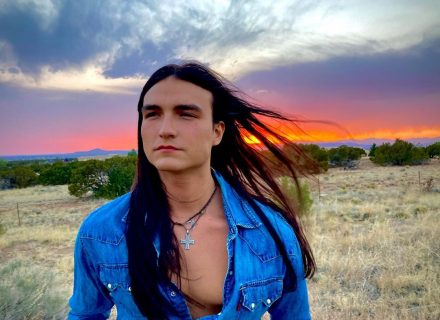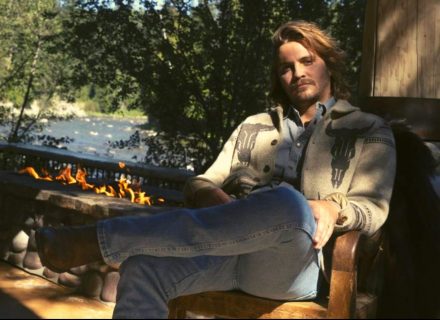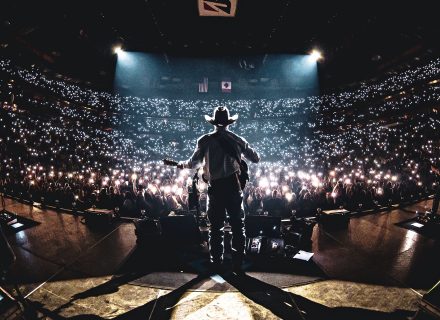Andy Hedges’ new double album, Roll On, Cowboys, features collaborations with the genre’s best and brightest. We talk to the West Texas artist about what inspired it.
Cowboy poet and musician Andy Hedges lives for his particular art form. When the West Texas native isn’t taking stages at poetry events and marquee festivals around the country, he’s recording and releasing his own records or mixing it up with fellow artists on the Cowboy Crossroads podcast.
Hedges aims to honor the world that’s given him so much purpose in his latest album, the just-released double CD, Roll On, Cowboys.
“It's a double album of cowboy duets,” Hedges told us in conversation a few days before his recent appearances at Elko, Nevada’s National Cowboy Poetry Gathering. “Every person on this album is very important to me. These collaborations are really personal, and it's people that are either heroes and mentors or close friends and peers.”
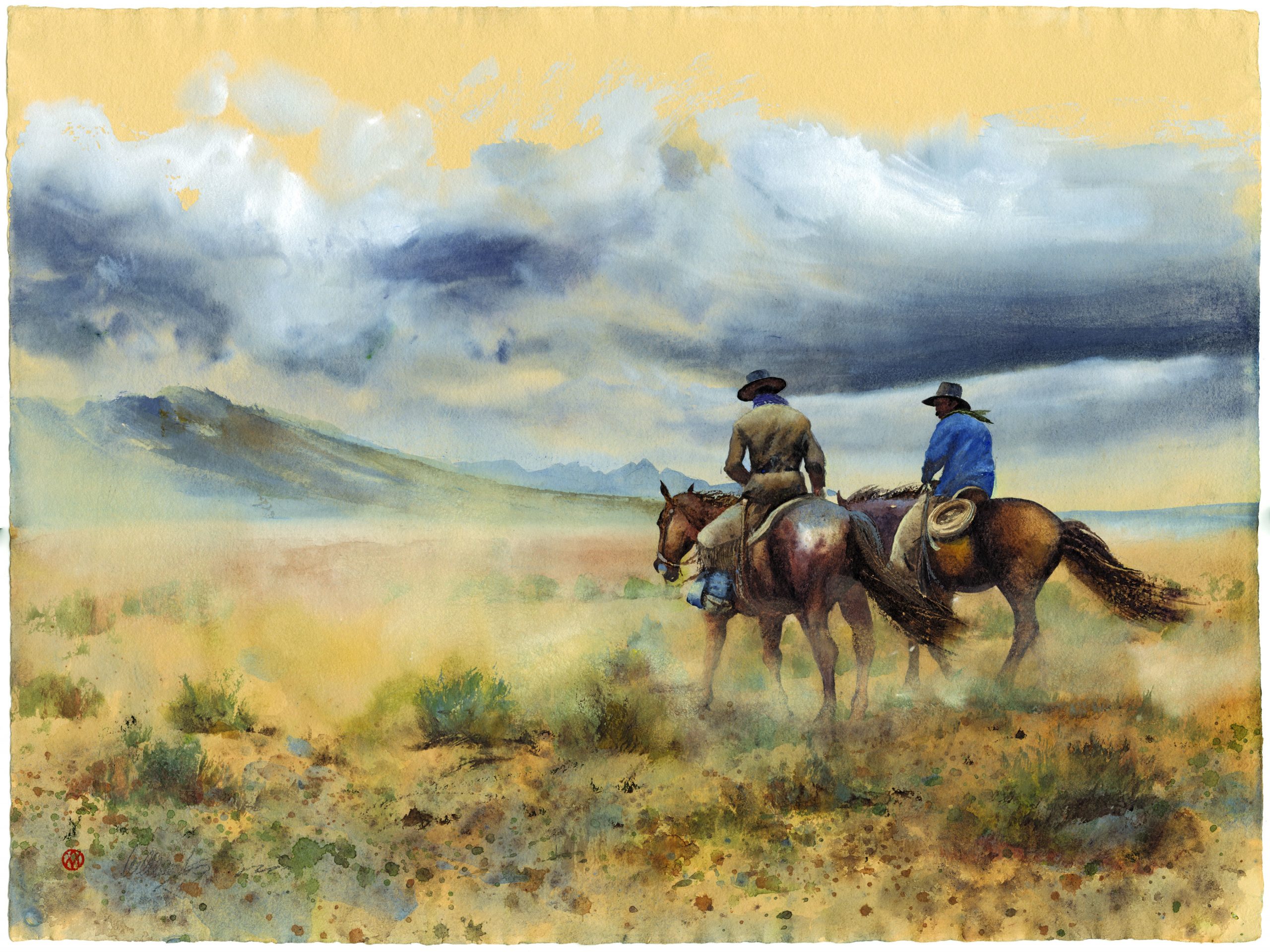
The list of contributors is a who’s who spanning generations: Hedges is joined by Ramblin’ Jack Elliott, Corb Lund, Michael Martin Murphey, Tom Russell, Rod Taylor, Brenn Hill, Waddie Mitchell, Brigid Reedy … the list goes on. Included with the music are essays, educational notes on the songs and lyrical sources, and extended quotes from the collaborating artists. The cover image is a breathtaking piece by artist William Matthews.
C&I: Listening to the new album and reading through the notes, it’s striking, the thought that went into it and how it unfolds. It is giving listeners a more complete idea of the cowboy life. Was that your design in putting it all together?
Andy Hedges: I was really thinking of this as a tribute to the cowboy tradition from the very beginning to the present day, and especially to the people that have influenced me so deeply. That includes the people who are on the album, but also people who have passed on and people from the past. I was thinking of Jack Thorp and Buck Ramsey and Glenn Ohrlin and Don Edwards, obviously …
He's always been a tremendous influence on me. I think every track was planned out, if not recorded, before his passing [in late 2022]. I hadn't decided to dedicate it to him until he passed, and then it seemed like, oh, this obviously should be for Don. And as I started looking, his name just kept coming up in liner notes, whether it was things he wrote or set to music, or things I learned from him. I wouldn't be doing what I do without Don Edwards — his influence and encouragement.
I would say it's sad that he doesn't get to hear the finished product, but at the same time, he lived these songs and this lifestyle, and so much of his tradition is passed on in the way you deliver these songs ...
I hope he would've liked it. I was just getting ready to drop one in the mail to his wife, Kathy, and so I hope she enjoys it. I thought Don was the best cowboy singer of all time, not just of modern times. I really think he surpassed anyone who had come before him. You can't really think about traditional cowboy music without thinking about Don, and so it's hard to overstate his importance to the genre and his importance to my own interest in this and this album in particular.
Do you think that traveling around and doing your podcast paved the way for this project?
I think that's true in some ways. I connected on a deeper level with some of these artists when I did interview them. And that led to deeper friendships with some of them and, I think, made it possible for me to have this kind of connection with them. But the podcast and doing those interviews, I think it was my wife, Alissa, who suggested — as the podcast was really rolling and people were expressing a lot of interest in it — that it would really flow well with that work to do a recording that featured a lot of the people that I had interviewed. … For me, all of this work that I do — whether it's interviewing someone or playing a song on stage or researching an old song or poem — it's all kind of the same goal for me of wanting to chronicle cowboy culture and shine a light on this rich tradition that I think is so important and meaningful. And it's hard to, in some ways, separate the music from the work that I do as a documentarian.
It's all one thing. I see you as a researcher and a student who's becoming the teacher with this kind of work, because the lyrics and the liner notes are such an important part of it. Really well-thought-out notes about songs and why they were chosen and why you perform them with particular artists. It's like a song-catching project in a way. Professionally recorded, of course, but with simple, traditional arrangement. Do you see yourself as someone who's teaching a way of life with music?
Well, I don't know if I think of myself as a teacher, but to mention Don Edwards again, Don used to say that those of us who play this music are stewards of the music, stewards of the songs, just like a rancher is a steward of the land. So, I do feel a responsibility to treat these songs with the respect that they deserve, and to try to keep the tradition healthy and vibrant for future generations. [I] certainly hope that they will take this music on as I have. But if anything, I feel like I'm a student of some of the younger folks on the record.
Pete Seeger used to say that those of us who sing folk music are all a link in the chain. So I think of myself that way. I don't know that I'm trying to teach the next generation, but I'm trying to pass the tradition on and take my place in it, and I hope it'll continue — I have high hopes that it will.
That speaks to the title track and the idea that the songs will be written later, and our job is to roll on and live the life and honor it. The message I got from a lot of it is just the storytelling in general, the detail, and the ups and downs of life. You have it all here: the things that bring cowboys joy and the sad moments when they say goodbye.
What you're making me think of is the fact that we did all these songs basically live in the studio. There were very few overdubs, and there was nothing done virtually. Every song was recorded with me face-to-face with the artist I was recording with. So, I think that gave the recordings this sort of unadorned and raw immediate quality that I hope they have. It was so exciting to do those sessions. If anything, it was hard to take it all in. Some of it just went too fast.
It always does.
And it's an interesting feeling to be sitting down with Ramblin' Jack Elliott or Tom Russell, recording a song and realizing, "Man, this is it. It's happening right now. We're doing it live, and now is the time to step up and sing this song as well as you can and enjoy the moment, and hope it comes out good on the record." So that was exhilarating and fun and overwhelming, and I'm just excited to see what people think of the recordings.
For those uninitiated into the world of cowboy poetry and singer-songwriters, this album could be a really good entry. But what would you say someone should do to go deeper after they hear this music and think, "Oh, I'm missing out on something that's kind of vibrant"?
Well, I tried to put the liner notes together in such a way so that someone could really dig deep if they really had an interest in this. So, I would encourage folks to get ahold of those. Even if they don't own a CD player, it might be worth picking up the package to get that booklet. There are a lot of people and recordings and books referenced. … And, obviously, my podcast is a place folks can dig pretty deep in conversations with a lot of the old-timers and the elders of our tribe. And maybe most important of all would be to show up at one of the cowboy poetry gatherings and experience this tradition and this community in person, and see if you can get to know these folks.
What was the time with Michael Martin Murphey like? It was poignant to hear him sing "Rounded Up In Glory." And knowing that you yourself had performed it at Don Edwards' memorial made it even more touching.
Well, it was wonderful to record with Murph, and Murph has spent a lot of his career out in the Red River, New Mexico, area. He plays out there every summer. He really loves that part of the world. And I also love that area — my wife and I have a place out in Eagle Nest, New Mexico, not far from Red River. So, we spend a lot of time out there, and it actually worked out for me and Murph to record this together in Red River at a little studio. He's been such an encouragement to me. But one reason he's so important to all this for me is the first time I really discovered the modern renaissance of cowboy poetry and music, it was when I was 13 years old, and I saw a video of an Austin City Limits concert that was Michael Martin Murphey and friends [1991's A Salute to the Cowboy]. Murph had just come out with his first album of cowboy songs, and he had Waddie Mitchell and Don Edwards on that show and some other folks. That was my first exposure to those guys, and it blew me away as a kid. I couldn't get enough of it, and it was kind of a moment where I think I knew, I want to do that. 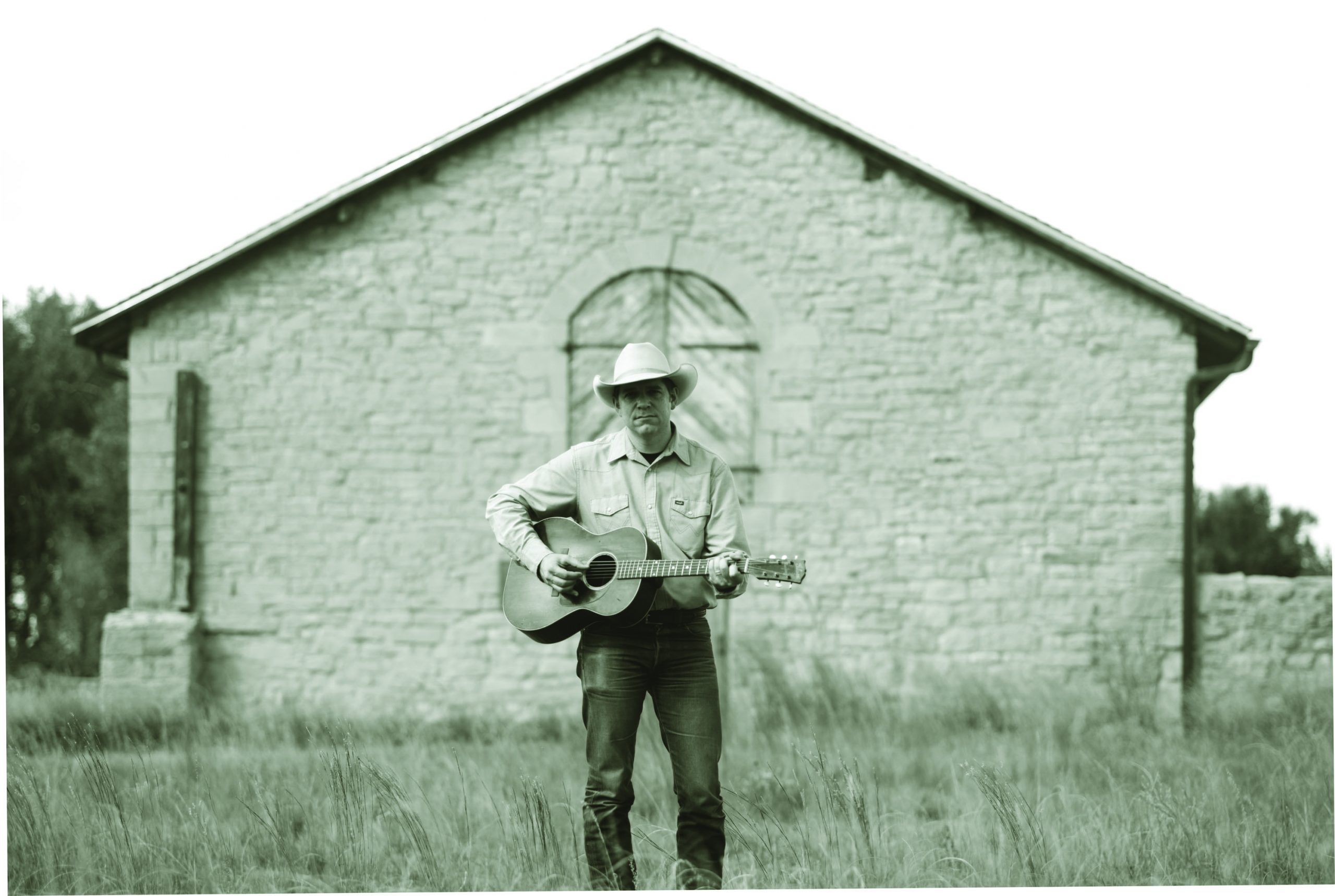
What are you looking forward to at the live release show in April? You have a lot of the album’s collaborators and duet partners involved in it. Is the show going to kind of unfold the way the album does?
I suspect it will unfold like the record, probably with the addition of some conversation and stories with the artists. And everyone except for Corb Lund is able to make it. Corb had a conflict in his schedule. But every other artist [on the record] is booked and confirmed to be there, and we're going to film it. So that's going to be a really exciting night.
Find out more about Andy Hedges’ new record and upcoming live dates at andyhedges.com.














